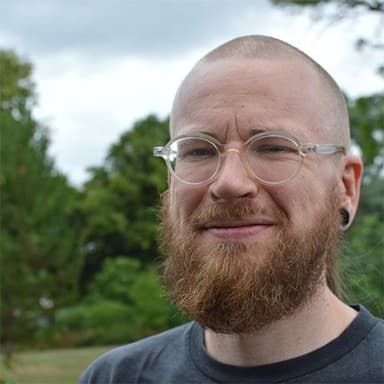![[object Object]](/_next/image?url=https%3A%2F%2Fcdn.sanity.io%2Fimages%2Fei1axngy%2Fproduction%2Fef070923b464a8de88e1f86200d4ebb6f0a60c57-474x473.webp&w=256&q=75)
by The digiLab Team
Updated 22 February 2023
Which ML Experts should you Follow in 2023?
![[object Object]](/_next/image?url=https%3A%2F%2Fcdn.sanity.io%2Fimages%2Fei1axngy%2Fproduction%2Fa2ca8c53b4201cb529f8284c2c5df117b207e4a7-600x400.jpg&w=2048&q=75)
If "all models are wrong, but some are useful", then "all lists are subjective, but some contain gems". Most of these sorts of articles contain similar, clickbaity names. Sometimes this is because they have just ranked people who are vaguely to do with AI by their follower count ("ML influencers"). We don't think that this method is a great proxy for deciding whether someone is worth listening to - although we await the day that Barack Obama, the most followed person on Twitter, advances the frontiers of Machine Learning...
We're passionate about using AI/ML in industry, to solve engineering and sustainability challenges. So we thought we'd make a list which is a bit more personal and a bit less mainstream. We're excited at the moment by PINNs, Uncertainty Quantification, Gaussian Processes, and Spiking Nets: our list reflects that!
Machine Learning Experts to Follow
1. George Em Karniadakis.
The father of Physics-Informed Neural Networks (PINNs)! In a paper co-authored with Maziar Raissi and Paris Perdikaris, these are described as "neural networks that are trained to solve supervised learning tasks while respecting any given laws of physics described by general nonlinear partial differential equations". The laws of physics effectively function as a regularisation agent in the training process.
You can see why Team digiLab is a fan of Karniadakis - we are frequently applying AI/ML to physical systems! Check out more of his work here.
2. Mirella Lapata
Lapata is a NLP powerhouse and a Professor in the School of Informatics at the University of Edinburgh. She works on "computational models for the representation, extraction, and generation of semantic information from structured and unstructured data". If you fancy playing round with some projects and code in this area, her homepage has some great links!
3. All the BoTorch-ers on this page.
Okay, so this isn't a single person, but there were just too many amazing people on here. BoTorch stands for "Bayesian Optimisation in PyTorch". So no prizes for guessing why we like it. Everyone on that page contributed peer-reviewed papers that build on BoTorch. But if we had to pick one, it would have to be where it all started: BoTorch: A Framework for Efficient Monte-Carlo Bayesian Optimization. So that's shout outs to Maximilian Balandat, Brian Karrer, Daniel R. Jiang, Samuel Daulton, Benjamin Letham, Andrew Gordon Wilson, and Eytan Bakshy!
4. Wolfgang Maass.
Wolfgang Maass is a very well-regarded figure in the area of brain-inspired, neuromorphic computing. He provided some early evidence that spiking models have higher computational power than other 'classical' models, and is very active in the area of meta-learning. If you're interested in any of these areas, you can read find some of his papers here.
5. Sander Bohte.
Another person to do with spiking nets! Sander Bohte introduced a very early application of back-propagation in neuromorphic networks, which is one of the main reasons why spiking nets can now come close to the performance of traditional networks. His homepage is here. This paper explores how spiking nets could start to combine the best of biologically inspired models and performance-focused, more conventional artificial neural nets
6. Kathleen Champion.
Kathleen is a data-centric engineer who looks at how to model complex physical systems. She now works for Amazon Go, but you can check out some of her research here. Of particular interest is PySINDy, a package for the sparse identification of nonlinear dynamical systems, which she worked on with, amongst others, Steve Brunton (see 9. below).
7. Neil Lawrence.
Neil Lawrence researches how machine learning solutions interact with the real world on an end-to-end basis. A lot of his work has been focused on Gaussian Processes, and digiLab LOVES these (you hear the two-letter acronym "GP" so often that visitors might mistakenly think they've ended up in a medical clinic!). Neil runs a great blog at: https://inverseprobability.com/blog.
8. Colin Fox.
Here at digiLab there's a bit of a Colin Fox fan club, mainly due to his beard. He mostly concentrates on computational Bayesian inference, fast algorithms, and inverse problems. He was also a founder Editor of the ASA/SIAM Journal on Uncertainty Quantification. Now the fan club makes sense...
9. Steve Brunton.
We'll finish our list on a fun one: Steve Brunton. He's got a killer YouTube channel, and here at digiLab we've spent many hours deconstructing the glass wall effect and arguing about whether he's been flipped the wrong way round. He focuses on ML in dynamic/control/fluid systems.
10. (BONUS) everyone at digiLab, the experts in AI/ML for sustainability.
The list wouldn't be complete without some tongue-in-cheek self-promotion. At digiLab we're accelerating the push to Net Zero by helping industry overcome their sustainability challenges using next-gen ML. We also teach people how to do AI in the Wild via the digiLab Academy.
Want to learn more about Machine Learning from the digiLab team?
Check out our online machine-learning course 'AI in the Wild' and watch your skills go 🚀🚀🚀
Featured Posts
If you found this post helpful, you might enjoy some of these other news updates.
Python In Excel, What Impact Will It Have?
Exploring the likely uses and limitations of Python in Excel

Richard Warburton
Large Scale Uncertainty Quantification
Large Scale Uncertainty Quantification: UM-Bridge makes it easy!

Dr Mikkel Lykkegaard
Expanding our AI Data Assistant to use Prompt Templates and Chains
Part 2 - Using prompt templates, chains and tools to supercharge our assistant's capabilities

Dr Ana Rojo-Echeburúa